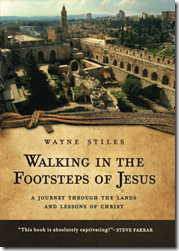This is a continuation of the previous post. I’ve listed the books more or less in the order that I read them.
Bringing up Boys, by James Dobson – Kelli and I read through and discussed this book. I was disappointed, as it was more of a commentary on our society than tips in how to raise boys. A couple of his main points: boys are made by God to be aggressive, so be ready for that; there are lots of traps in society to hurt boys, so watch out. Maybe I’m ignorant, but I didn’t have major problems with his “psychology,” though he’s clearly more of a motivator than a Bible teacher.
Paul and His Letters, by John B. Polhill – This was the most helpful book I read this summer, but it also took the longest (440 pages of smaller print). I read it on the advice of a DTS prof, but it won’t count for anything class-wise. But it’s a great book for putting Paul’s ministry and writings together. I don’t agree with all of his conclusions, but he is pretty thorough (for the nature of the work), writes well, and helps you to see the big picture. Recommended.
A Basic Guide to Interpreting the Bible, by Robert H. Stein – Any self-respecting PhD student wouldn’t publicly admit that he read this, but while it is simpler than what I’m going to get in my Hermeneutics class this semester, I think it is (generally) helpful. Simple can be better. And I’m not sure how necessary it is to understand all the wackos who think that there isn’t a single meaning or the text is detached from the author. I guess I’m about to find out. But you can save yourself the grief if you just want a basic and intelligent guide to hermeneutics.
Blame It on the Brain?: Distinguishing Chemical Imbalances, Brain Disorders, and Disobedience, by Edward T. Welch – Kelli and I read this at the recommendation of a TMC counseling prof. The book overall had good insights and I would certainly recommend it. It didn’t have the magic pill I was looking for for a specific problem in our lives, but I don’t think that’s the book’s fault. It is relatively brief, reads fast, and contains much wisdom.
Exegetical Fallacies, by D. A. Carson – My last book before I start on reading due for my first class (oh, the evil of distributing syllabi ahead of time, such that the teacher can require gobs of reading on the first day you show up). This is another one I should be ashamed to admit that I read for the first time. It’s considered a classic by many, and rightly so. If you got out of seminary, like me, without reading it, I suggest you fix that. Bible majors in college could certainly benefit from it, and on up. It’s also fast and easy reading.
I wish I could read more, but I feel that it was probably one of my better summers of reading in a long time. My desire to read is very high, but the priority is low because of other responsibilities. That reminds me: I’ve actually read many other books this summer that aren’t this list. I’m not sure that those would be as interesting to you though.

